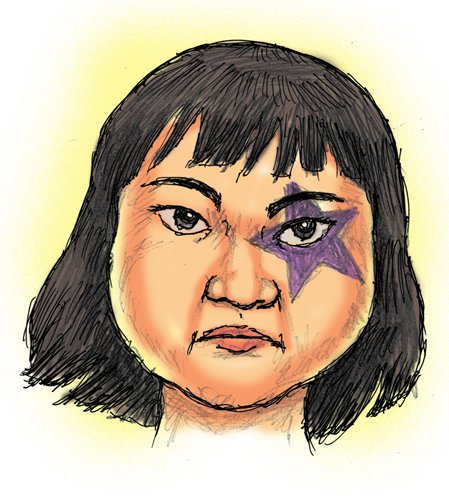
Illustration: Peter C. Espina/GT
A 12-year-old Chinese girl sent law enforcement officers in the US into a frenzy on August 2 when she went missing from Reagan National Airport in Washington, D.C. Ma Jinjing came to the US from China with a group of Chinese students in late July. After spending a week on the east coast, the tour group was scheduled to fly to the west coast, and then back to China. But right before they went through the security check with passports in hand, Ma said she needed to use the bathroom. She then disappeared. The airport surveillance camera caught her walking away from the airport with an Asian woman and then getting into a car driven by an Asian man.
It was initially suspected to be abduction. The Federal Bureau of Investigation, the Airports Authority, the Immigration and Customs Enforcement and local police all jumped into the investigation. An AMBER alert, which is issued publicly by the police when a child is suspected of being abducted, was issued. For a while, law enforcement believed Ma was in "extreme danger."
It was not an overreaction. Human trafficking has been on the rise in the US in recent years. According to the National Human Trafficking Hotline, 8,759 human trafficking cases were reported to the organization in 2017, a 13 percent increase from the previous year. Women and girls comprised about 80 percent of the identified survivors. This is forced trafficking, not to be confused with human smuggling, which in most cases is voluntary.
But Ma's case was solved a day later. She was not abducted but taken away by her biological parents, and re-emerged in Queens, New York, in their custody. The family's lawyer told authorities that her parents came to the US earlier and have legal status and Ma herself can stay until her tourist visa expires.
This drama may perplex many mainstream Americans, but is not hard to understand for Chinese immigrants. Back in the 1960s, Chinese who wanted to move to the US but did not have the legal means to do it used this method, dubbed "plane jumping" or, more commonly in those days, "ship jumping," to stay here.
Such practice is less common today. Amid the rising number of tours from China, tour agencies and event organizers often collect the passports of participants and return them only when they are ready to board the plane to go home. And those who still manage to "jump" the plane today face a much harsher response from authorities than in the past.
In the second half of the 20th century, most "jumpers" from China found the brazen endeavor worth it. The huge gap between the economies of China and the US meant as long as they could reach the "land of opportunity," they would one day be able to go back to China, much richer - at least compared to others in their towns and villages - thanks to the savings they could make from often backbreaking and laborious work in the US.
A man from Fujian Province who jumped the plane in the 1980s told me that back then he felt he could not own a color television set in his entire life if he stayed in China.
In addition, up to the Obama era, a lenient US immigration policy made it easy for anyone who crossed the border without proper documents or who overstayed their visas to find a way to stay back in the country. A green card via the request of political asylum, if it went smoothly, could be obtained within two years. With a green card, one can live and work in the US without legal hurdles, and improve one's life simply by working hard.
Now, the boot is on the other foot. A stricter immigration policy under the Trump administration has increased the distance between immigrants and their American Dream. International students find it much harder to obtain an H1 work visa after graduating, immigrants prepared to invest to get a visa find the queue is longer and the application review process seemingly unending. Parents and siblings of naturalized US citizens may soon lose their eligibility to apply for a green card on a family reunion basis.
What about those who don't have proper documents to live in the US? They'd consider themselves lucky not to be arrested by immigration officers who may suddenly show up on their doorstep. And all this is happening at a time the disparity in living standards between China and the US is shrinking fast, making "plane jumping" unlucrative and even weird to talk about.
Coming back to Ma's case, without more details it is hard to ascertain the motive behind her "plane jumping." And her parents may have already found a way to obtain an immigration visa for her if they want her to live with them.
But even if everything goes well, the child will have to live with a blemish. Ma's name and pictures have been flashed in all major Chinese and English media outlets in the US and are associated with a controversial story. How this may affect the child's future is hard to tell.
The author is a New York-based journalist. rong_xiaoqing@hotmail.com
